Find Help
More Items From Ergsy search
-
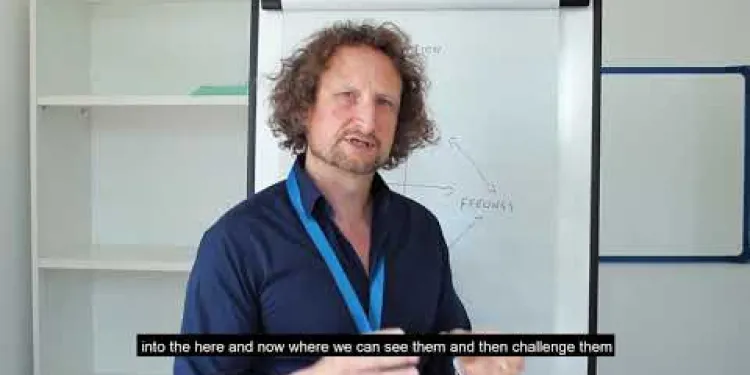
What is CBT
Relevance: 100%
-

How does cognitive-behavioral therapy help with health-related anxiety?
Relevance: 36%
-
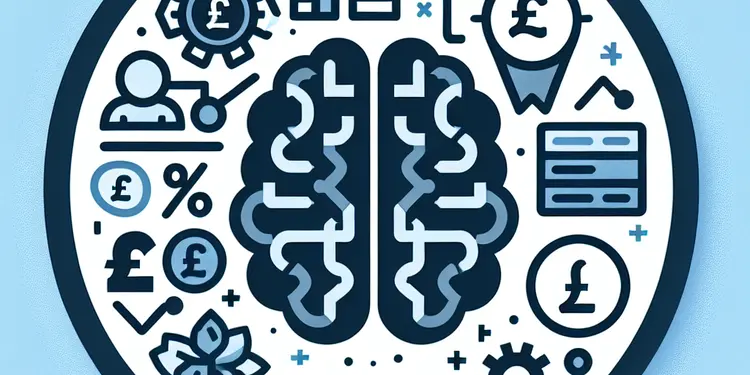
Are there psychological aspects to chronic fatigue syndrome?
Relevance: 26%
-
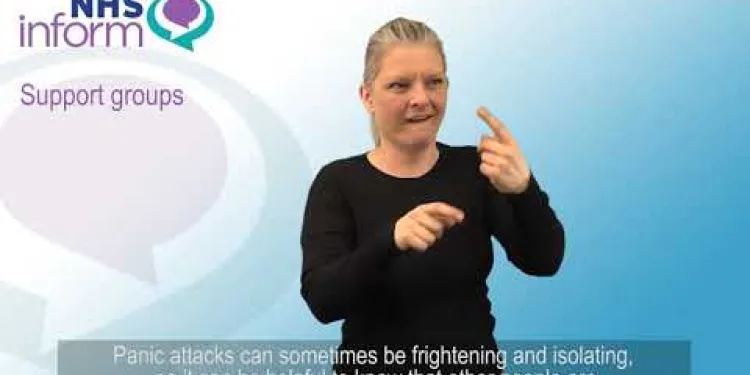
BSL - Treatment of panic disorder
Relevance: 26%
-
What is the role of therapy in treating eating disorders?
Relevance: 25%
-
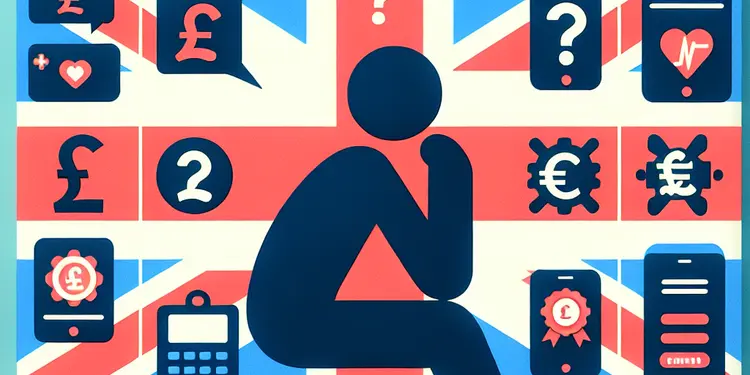
What should someone do if they suspect they have health-related anxiety?
Relevance: 25%
-
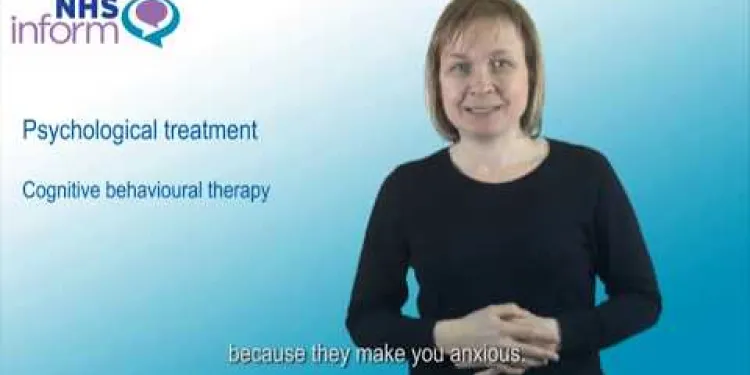
Treating generalised anxiety disorder (GAD)
Relevance: 25%
-

Clinical depression: Lawrence's story | NHS
Relevance: 25%
-

Treating anxiety and depression - www.slam.nhs.uk
Relevance: 24%
-
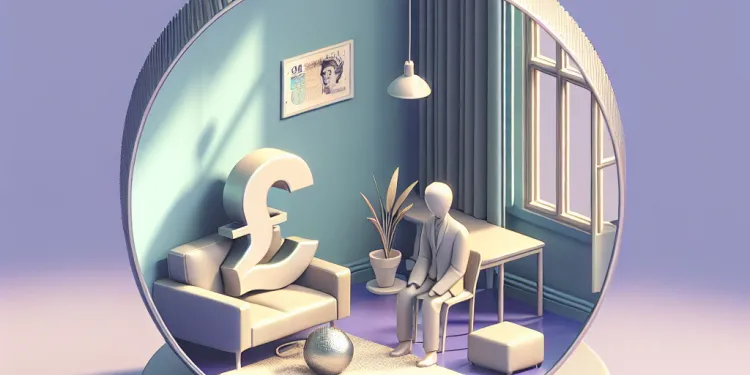
Can therapy help individuals with ADHD?
Relevance: 24%
-
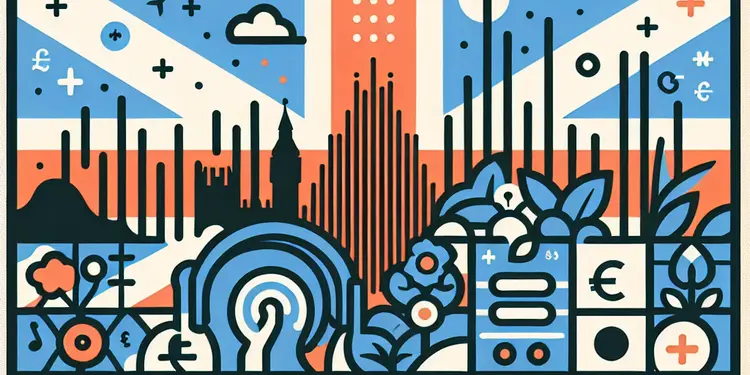
What are some coping strategies for tinnitus?
Relevance: 24%
-

Is it possible to fully recover from health-related anxiety?
Relevance: 23%
-
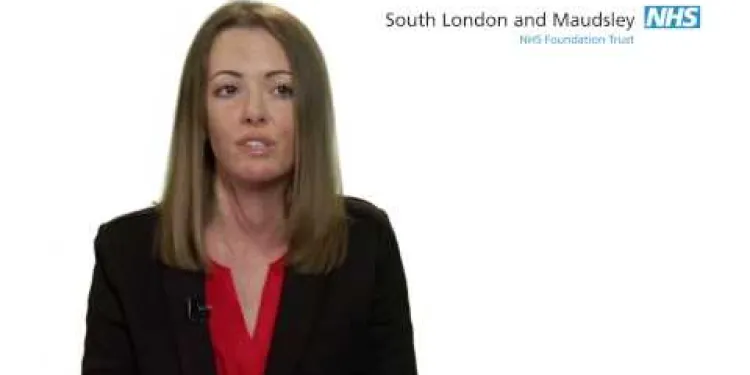
OCD
Relevance: 22%
-
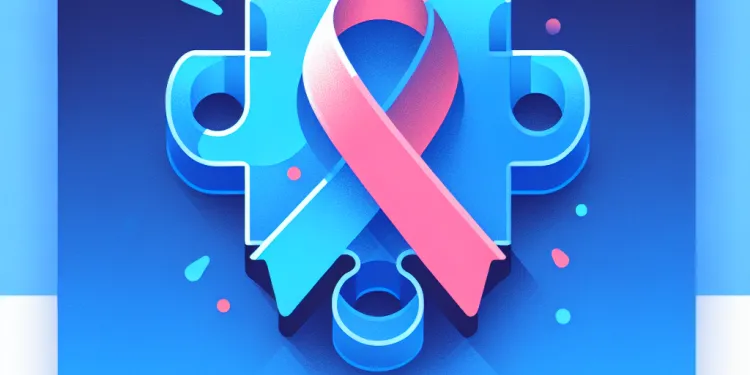
What are some common therapies for autism?
Relevance: 22%
-
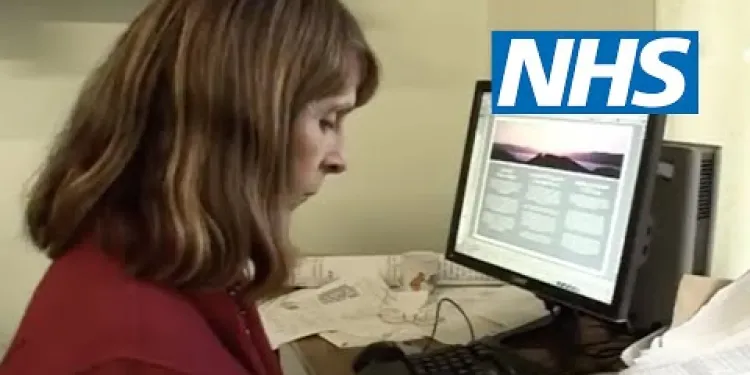
Anxiety | NHS
Relevance: 21%
-

Needle phobia - Top tips video
Relevance: 21%
-

How is chronic fatigue syndrome treated?
Relevance: 21%
-
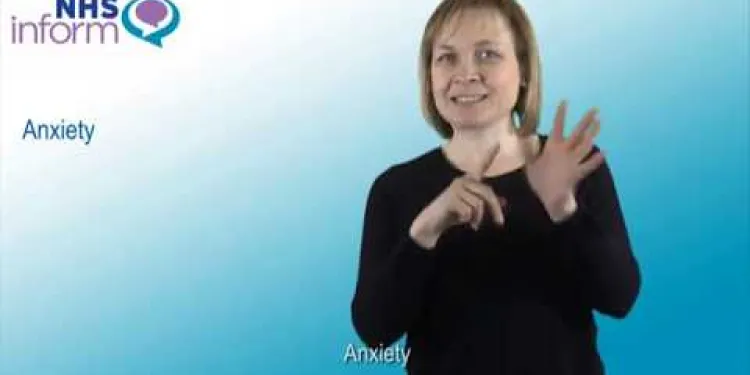
Generalised anxiety disorder (GAD)
Relevance: 21%
-

Can I become an NHS nurse if I have international nursing qualifications?
Relevance: 20%
-
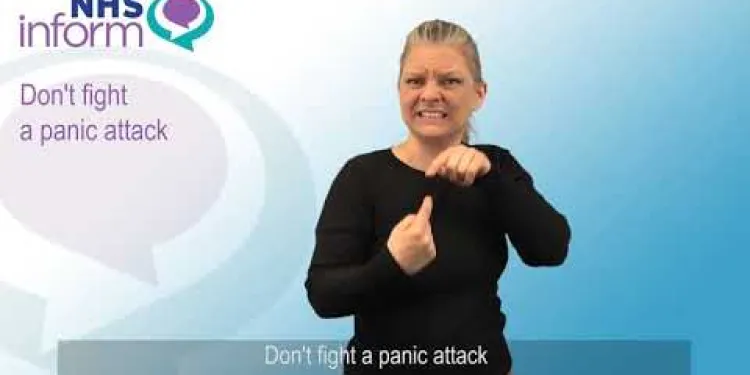
BSL - Panic disorder: things you can do to help yourself
Relevance: 20%
-
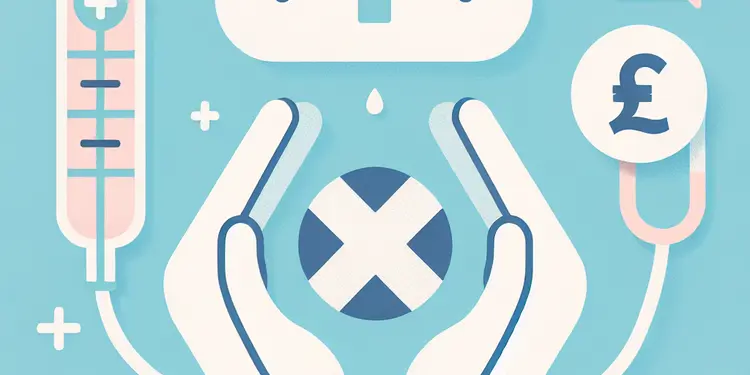
Why is reassurance not always helpful for health-related anxiety?
Relevance: 20%
-
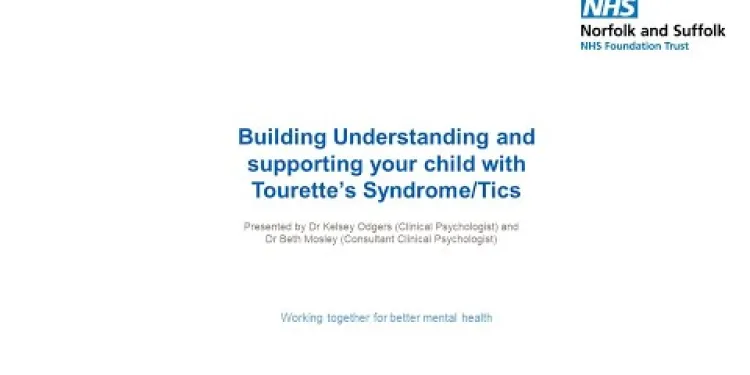
Building Understanding and Supporting Your Child with Tourette’s Syndrome/Tics
Relevance: 19%
-
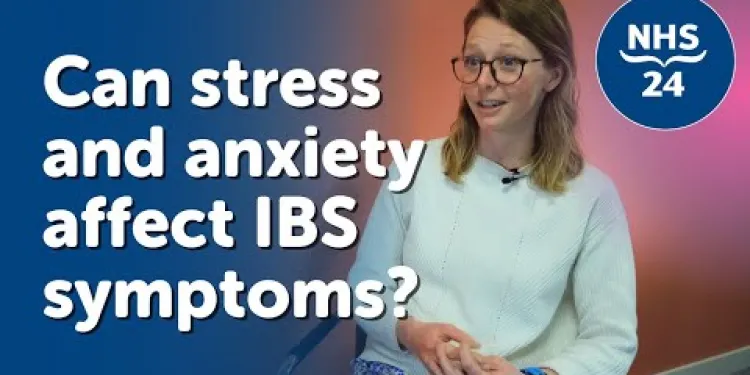
IBS and your mind: Is there a connection?
Relevance: 19%
-
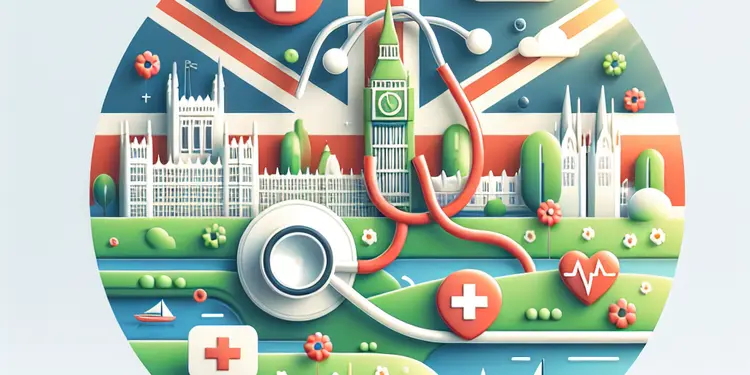
What are common treatments for health-related anxiety?
Relevance: 18%
-

Coping with Stress and Anxiety
Relevance: 18%
-

Strategies for Managing Seasonal Affective Disorder
Relevance: 18%
-

Is there support available for people with tinnitus?
Relevance: 18%
-
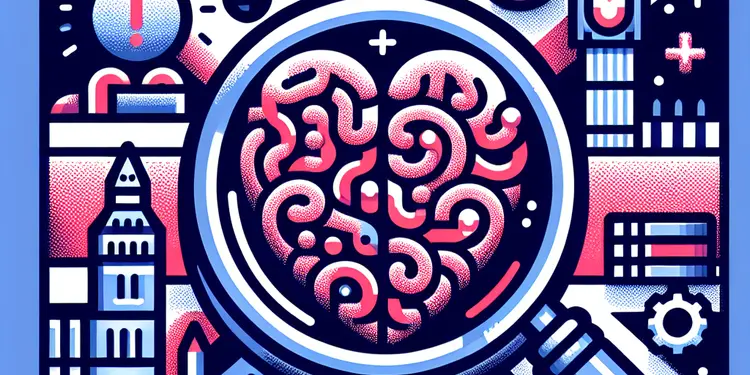
Is health-related anxiety a common condition?
Relevance: 18%
-
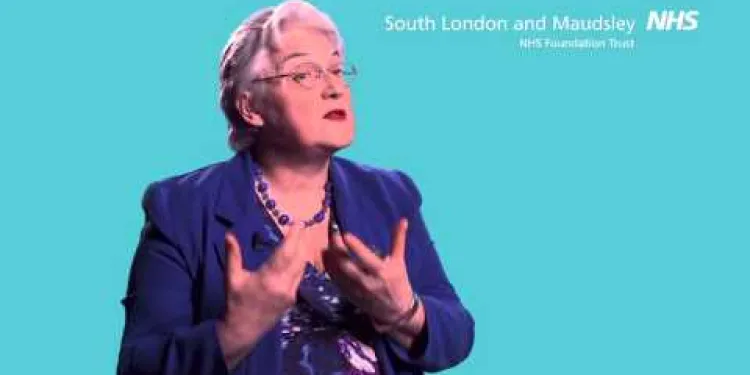
Eating disorders: treatment
Relevance: 18%
-

How is health-related anxiety different from general anxiety?
Relevance: 17%
-

What is the role of pain management in treating whiplash?
Relevance: 17%
-

What is health-related anxiety?
Relevance: 17%
-
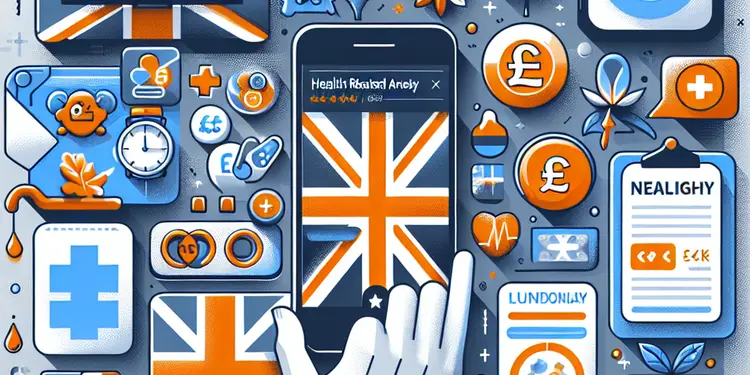
What is health related anxiety?
Relevance: 17%
-
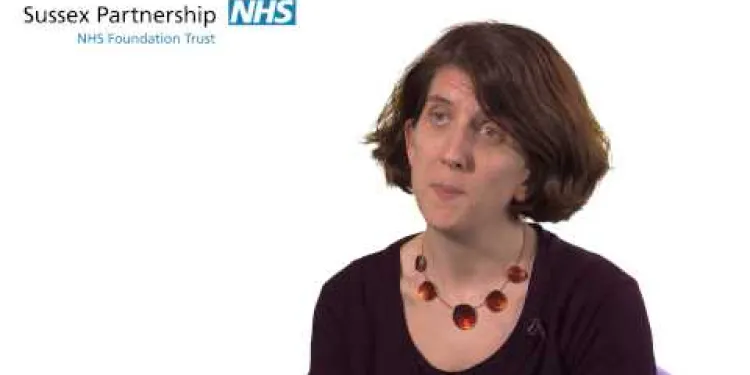
Clara Strauss: What is Obsessive Compulsive Disorder OCD
Relevance: 16%
-

Is medication effective for health-related anxiety?
Relevance: 16%
-

Are there any treatments available for tinnitus?
Relevance: 15%
-
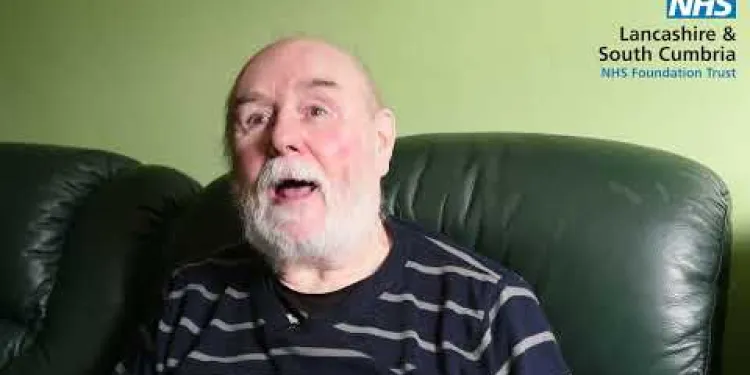
Steve Green tells his story on living with a hoarding disorder
Relevance: 15%
-
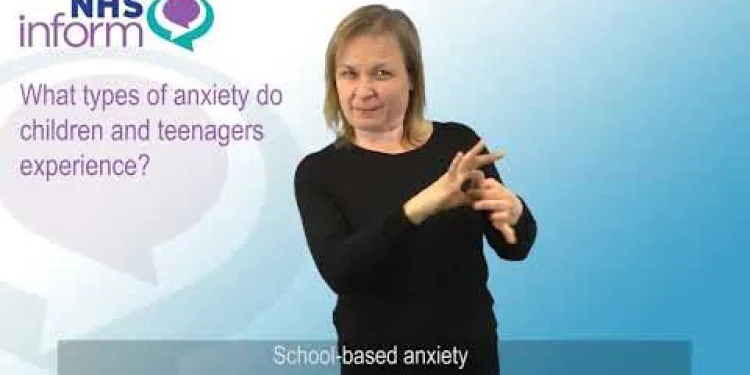
Anxiety in young people
Relevance: 15%
-

What are common treatments for ADHD?
Relevance: 14%
-
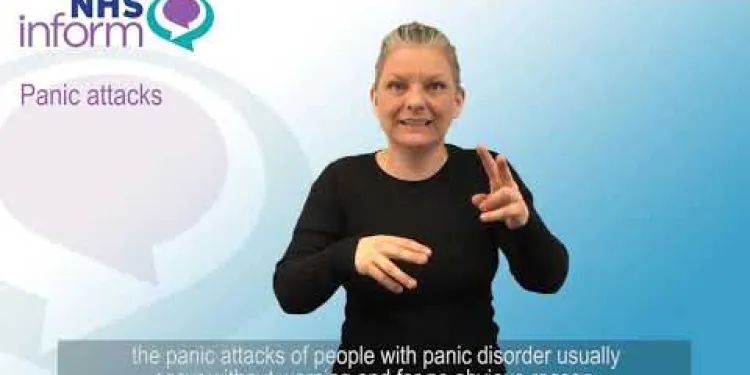
BSL - Diagnosis of panic disorder
Relevance: 14%
What is CBT?
Introduction to Cognitive Behavioural Therapy
Cognitive Behavioural Therapy (CBT) is a widely used form of psychological treatment that addresses problematic thought patterns to change emotions and behaviours. It is evidence-based and has shown effectiveness in treating a variety of mental health conditions, including depression and anxiety. CBT is based on the concept that our thoughts, feelings, and behaviours are interconnected, and changing negative thoughts can improve emotional well-being and behaviour.
How CBT Works
CBT works by helping individuals identify and challenge negative thought patterns and beliefs that contribute to emotional distress or unhelpful behaviours. A trained therapist guides the patient through exercises and discussions to help them understand their thinking patterns. This process often includes keeping thought journals, participating in behavioural experiments, and learning coping strategies. Through CBT, individuals can develop skills to manage their symptoms and reduce psychological distress.
Types of Conditions Treated with CBT
CBT is effective in treating various mental health conditions. Common conditions addressed with CBT include depression, anxiety disorders, obsessive-compulsive disorder (OCD), post-traumatic stress disorder (PTSD), eating disorders, and phobias. Additionally, CBT has been adapted to help individuals manage chronic pain, sleep disorders, and stress-related conditions.
Accessing CBT in the United Kingdom
In the United Kingdom, individuals can access CBT through the National Health Service (NHS), private healthcare providers, or local mental health charities. The NHS offers CBT free of charge, usually through referral by a GP. Some areas also have self-referral options via Improving Access to Psychological Therapies (IAPT) services. Private therapy sessions are available for those who prefer faster access or more flexible scheduling.
Conclusion
Cognitive Behavioural Therapy is a powerful and effective treatment for a range of mental health conditions. By working with a trained therapist, individuals can identify negative patterns, learn coping mechanisms, and improve their overall mental health. The UK's accessibility to CBT through the NHS and other avenues ensures that those in need can receive support and improve their quality of life.
What is CBT?
Introduction to Cognitive Behavioural Therapy
Cognitive Behavioural Therapy, or CBT, is a type of talk therapy. It helps people change unhelpful thoughts to feel better and act in a more positive way. CBT is often used to help with problems like feeling very sad (depression) or worried (anxiety). It works because it shows how our thoughts, feelings, and actions are all linked. By changing our thoughts, we can feel happier and do better things.
How CBT Works
In CBT, a therapist helps a person notice bad thoughts that make them upset. The therapist then helps them change these thoughts. The person might keep a diary, try out new ways to act, and learn how to cope better. With CBT, people can learn new skills to feel better and be less upset.
Types of Conditions Treated with CBT
CBT helps with many mental health problems. It can help with feeling very sad (depression), being very worried (anxiety), having scary thoughts (OCD), or feeling scared after a bad event (PTSD). CBT can also help with problems like pain, trouble sleeping, and stress.
Accessing CBT in the United Kingdom
People in the UK can get CBT through the NHS for free. You often need a GP to refer you, but some places let you sign up on your own. Private therapists are an option if you want to start quicker or choose your own schedule.
Conclusion
CBT is a strong way to help with mental health problems. A therapist helps people find bad thought patterns and learn new coping skills. In the UK, CBT is easy to access through the NHS and other services so people can get the help they need to feel better.
Frequently Asked Questions
What is CBT?
CBT stands for Cognitive Behavioural Therapy. It is a type of talking therapy that aims to help you manage problems by changing the way you think and behave.
How does CBT work?
CBT works by breaking down your problems into smaller parts and addressing how these issues affect your thoughts, feelings, physical sensations, and actions.
Who can benefit from CBT?
CBT can be beneficial for anyone experiencing mental health issues, including depression, anxiety, phobias, and stress. It is suitable for people of all ages, including children, adolescents, and adults.
How long does CBT take?
The length of CBT treatment can vary depending on the individual and the complexity of their issues. Typically, a course of CBT involves 5 to 20 weekly or fortnightly sessions.
Can I get CBT on the NHS?
Yes, CBT is available on the NHS. You can discuss it with your GP, who may refer you for therapy. There are also self-referral options in some areas.
Is CBT effective?
CBT has been shown to be effective in treating a wide range of mental health conditions. It is one of the most researched forms of therapy and has a strong evidence base supporting its use.
Are there any side effects of CBT?
CBT is generally considered to be a safe form of therapy. However, some individuals may feel emotionally uncomfortable at times as they confront and deal with their issues.
What can I expect in a CBT session?
During a CBT session, you'll work with a therapist to identify and challenge negative thought patterns and behaviours. Sessions are structured and goal-oriented.
Do I need a referral to see a CBT therapist?
You can access CBT through a referral from your GP, or in some regions, you can self-refer through NHS services. Private CBT therapists can be contacted directly without a referral.
Is CBT suitable for children and young people?
Yes, CBT can be adapted for children and young people. It is often used to help with issues such as anxiety, depression, and behavioural problems in younger populations.
What qualifications should a CBT therapist have in the UK?
In the UK, a qualified CBT therapist should have completed specific training in CBT and be registered with professional bodies such as the British Association for Behavioural and Cognitive Psychotherapies (BABCP).
Can I practice CBT techniques on my own?
Many CBT techniques can be practised independently. Self-help books, online courses, and apps can offer guidance and support for practising CBT on your own. However, working with a therapist may provide additional benefits.
What are some common CBT techniques?
Common CBT techniques include cognitive restructuring, behavioural activation, exposure therapy, and the use of thought records. These techniques help identify and change negative thought patterns and behaviours.
How much does private CBT cost?
The cost of private CBT sessions can vary widely. On average, you can expect to pay between £40 to £100 per session. Rates may be higher in larger cities or for highly experienced therapists.
Can CBT be combined with medication?
Yes, CBT is often used in combination with medication to treat certain mental health conditions. Your GP or psychiatrist can advise on the best treatment plan for your specific needs.
What is CBT?
CBT means "Cognitive Behavioral Therapy." It is a way to help people feel better. It helps people change how they think and act. This can make them feel happier and less worried.
How does CBT work? A therapist will talk with you. Together, you find out what thoughts make you feel bad. Then, you learn new ways to think and do things.
You can also use apps or read books to help you with CBT. Talking to a friend or family member can help too. Remember, it's okay to ask for help if you need it!
CBT means Cognitive Behavioural Therapy. This is a kind of talking treatment. It helps you feel better by changing how you think and act.
How does CBT work?
CBT helps people to feel better. CBT can change how you think and act. This can help you solve problems. It is like talking to a helpful friend.
Tools to help you:
- Make a list of what makes you feel bad or worried.
- Talk to someone you trust.
- Remember to take deep breaths when you feel upset.
CBT helps by splitting your problems into small pieces. It looks at how these problems change what you think, feel, how your body feels, and what you do.
Who can CBT help?
CBT is a type of help that can be good for people who are feeling sad, scared, have big worries, or feel lots of stress. It can help everyone, like kids, teens, and grown-ups. If you have trouble reading, try using software that reads text out loud, or tools that can help make the text bigger or simpler.
How long does CBT take?
CBT is a kind of talking therapy to help you feel better. It usually takes about 5 to 20 sessions. Each session might be around 30 to 60 minutes long. Everyone is different, so some people need more time, and some need less.
It can help to write things down or use pictures to remember what you talk about. You can also ask someone you trust to help you understand.
CBT can take different amounts of time for each person. It depends on their needs and what they are going through. Usually, CBT lasts for 5 to 20 sessions. These sessions can happen every week or every two weeks.
Can I get CBT with the NHS?
Yes, you can get CBT with the NHS. CBT stands for Cognitive Behavioural Therapy. It helps people with their thoughts and feelings.
If you think CBT can help you, talk to your doctor. They can help you see a therapist. Sometimes, you might have to wait a little while.
Try writing down your feelings to share with your doctor. This can help you explain why you want CBT.
Yes, you can get CBT through the NHS. Talk to your doctor about it. Your doctor might help you find a therapist. In some places, you can ask for therapy yourself without seeing a doctor first.
Does CBT work?
CBT stands for Cognitive Behavioral Therapy. It is a type of talking therapy. People use it to feel better about problems or worries.
Here is how CBT can help:
- It helps you think in a positive way.
- It teaches you to change bad habits.
- It helps you face fears slowly.
Many people say CBT helps them. But it might not work for everyone.
If you are trying CBT, here are some tips:
- Talk to a trained therapist.
- Practice the skills you learn in therapy.
- Be patient; change takes time.
If reading is hard, you can try:
- Listening to audio books.
- Using apps that read text out loud.
- Drawing pictures to understand ideas.
CBT is a type of talking treatment. It is very good at helping people with different kinds of mental health problems. Many studies show that CBT works well.
Does CBT have any side effects?
CBT can help many people feel better. But sometimes it might make someone feel a bit worried or upset. This can happen when people talk about things that are hard or sad. It's okay to feel this way, and talking to the therapist can help.
If you ever feel too upset, tell your therapist. They can help you feel better.
Remember: It's good to talk and share your feelings.
CBT, called "talk therapy," is usually safe. But sometimes, it can make people feel upset when they talk about their problems.
Here are some helpful tips:
- Talk to someone you trust if you feel upset.
- Write down your feelings in a notebook.
- Remember, it's okay to feel upset. It's part of getting better.
What happens in a CBT session?
A CBT session is a talk with a therapist. They help you understand your feelings and thoughts. You will learn new ways to deal with problems.
The therapist will ask questions and listen to you. They might give you small tasks to do at home to help you practice new skills.
You can ask the therapist questions too. They are there to help you. It's okay to talk about how you feel.
Using pictures or writing things down can help you understand better. You might also use apps or videos to learn more.
In a CBT session, you talk to a therapist. You try to find and change bad thoughts and actions. The meetings are planned and have clear goals.
Do I need a doctor's note to see a talking therapist?
If you want to see a talking therapist who helps with feelings, you might wonder if you need a doctor's note. Here is some simple advice:
- You can check if you can book an appointment by yourself.
- You can ask your doctor if they can help you see a therapist.
- Some places might need a doctor's note. Other places do not.
It is good to ask questions if you are not sure. Talking to someone is a big step, and you can get help from family, friends, or a caregiver.
Use simple tools like a calendar to remember appointments or a friend to help you with phone calls.
You can get CBT help when your doctor sends you. In some places, you can call NHS services yourself to get help. You can also contact private therapists without asking your doctor first.
Is CBT suitable for children and young people?
Can children and young people use CBT?
CBT stands for Cognitive Behavioral Therapy. It is a way to help people with their thoughts and feelings.
Yes, children and young people can use CBT. It helps them understand their feelings and how to deal with problems.
CBT can help with:
- Feeling sad or worried
- Problems with bullies
- School worries
Kids might use pictures, stories, and games in CBT to help learn.
If you want to try CBT, talk to a grown-up you trust.
Yes, CBT can help kids and teenagers. It is often used to help with things like feeling very worried, sad, or having behavior problems.
What does a CBT therapist need to work in the UK?
A CBT therapist helps people talk about their feelings and problems.
Here is what they need:
- Education: They should have gone to school to learn about therapy.
- Training: They need special training in CBT (Cognitive Behavioural Therapy).
- Experience: They should have practiced helping people.
- Registration: They must be part of a professional group like BABCP (British Association for Behavioural and Cognitive Psychotherapies).
For more help, they can use:
- Tutors: Teachers who can help them learn.
- Study Groups: Joining other learners to study together.
- Mentors: People who give advice and support.
In the UK, a CBT therapist needs to have special training in CBT. They should also be a member of a group like the British Association for Behavioural and Cognitive Psychotherapies (BABCP).
If you find reading hard, you can use tools like text-to-speech or audiobooks. These can read the words out loud for you. You can also try using a ruler or your finger to help keep your place while you read.
Can I do CBT exercises by myself?
You can try many CBT exercises by yourself. There are books, online classes, and apps that can help you practice CBT. Seeing a therapist can also be helpful and give you extra support.
What are some CBT techniques?
CBT stands for Cognitive Behavioral Therapy. It is a way to help people feel better by changing how they think and act.
Here are some tools and methods used in CBT:
- Talking about feelings: People share how they feel and why they feel that way.
- Thought diary: Write down your thoughts to see patterns and find better ways to think.
- Challenge bad thoughts: Learn to see if your thoughts are not true or helpful.
- Problem-solving: Find steps to solve problems instead of feeling stuck.
- Practice activities: Try new things to build confidence and feel better.
Tools that can help:
- Apps: Use an app to track feelings and thoughts.
- Workbooks: Use a workbook with exercises to practice CBT techniques.
CBT helps us feel better. Here are some ways it works:
- Changing Thoughts: We learn to see things in a new way. This helps us feel happier.
- Doing Fun Activities: We do things we like. This makes us feel good.
- Facing Fears: We try things that scare us a little. This makes us braver.
- Writing Thoughts Down: We write what we think and feel. It helps us understand our feelings.
These ideas show us how to think and act in a better way.
How much does private CBT cost?
Do you want to know how much money private CBT costs?
CBT stands for Cognitive Behavioral Therapy. It is a type of talking therapy.
Private CBT is when you pay for the therapy yourself.
The cost can be different. It depends on where you live and who your therapist is.
Usually, it can be between $50 and $200 for one session.
If you need help understanding costs, ask someone you trust.
Using a calculator can help you keep track of money.
The price for a private CBT session can be different. Usually, it costs between £40 and £100 each time you go. It might cost more if you live in a big city or if the therapist has a lot of experience.
Can CBT and medicine be used together?
Yes, sometimes doctors use talking therapy and medicine together to help with mental health problems. Your doctor can tell you what will work best for you.
Useful Links
Have you found an error, or do you have a link or some information you would like to share? Please let us know using the form below.
-->
This website offers general information and is not a substitute for professional advice.
Always seek guidance from qualified professionals.
If you have any medical concerns or need urgent help, contact a healthcare professional or emergency services immediately.
Some of this content was generated with AI assistance. We’ve done our best to keep it accurate, helpful, and human-friendly.
- Ergsy carfully checks the information in the videos we provide here.
- Videos shown by Youtube after a video has completed, have NOT been reviewed by ERGSY.
- To view, click the arrow in centre of video.
- Most of the videos you find here will have subtitles and/or closed captions available.
- You may need to turn these on, and choose your preferred language.
- Go to the video you'd like to watch.
- If closed captions (CC) are available, settings will be visible on the bottom right of the video player.
- To turn on Captions, click settings .
- To turn off Captions, click settings again.
More Items From Ergsy search
-

What is CBT
Relevance: 100%
-

How does cognitive-behavioral therapy help with health-related anxiety?
Relevance: 36%
-

Are there psychological aspects to chronic fatigue syndrome?
Relevance: 26%
-

BSL - Treatment of panic disorder
Relevance: 26%
-
What is the role of therapy in treating eating disorders?
Relevance: 25%
-

What should someone do if they suspect they have health-related anxiety?
Relevance: 25%
-

Treating generalised anxiety disorder (GAD)
Relevance: 25%
-

Clinical depression: Lawrence's story | NHS
Relevance: 25%
-

Treating anxiety and depression - www.slam.nhs.uk
Relevance: 24%
-

Can therapy help individuals with ADHD?
Relevance: 24%
-

What are some coping strategies for tinnitus?
Relevance: 24%
-

Is it possible to fully recover from health-related anxiety?
Relevance: 23%
-

OCD
Relevance: 22%
-

What are some common therapies for autism?
Relevance: 22%
-

Anxiety | NHS
Relevance: 21%
-

Needle phobia - Top tips video
Relevance: 21%
-

How is chronic fatigue syndrome treated?
Relevance: 21%
-

Generalised anxiety disorder (GAD)
Relevance: 21%
-

Can I become an NHS nurse if I have international nursing qualifications?
Relevance: 20%
-

BSL - Panic disorder: things you can do to help yourself
Relevance: 20%
-

Why is reassurance not always helpful for health-related anxiety?
Relevance: 20%
-

Building Understanding and Supporting Your Child with Tourette’s Syndrome/Tics
Relevance: 19%
-

IBS and your mind: Is there a connection?
Relevance: 19%
-

What are common treatments for health-related anxiety?
Relevance: 18%
-

Coping with Stress and Anxiety
Relevance: 18%
-

Strategies for Managing Seasonal Affective Disorder
Relevance: 18%
-

Is there support available for people with tinnitus?
Relevance: 18%
-

Is health-related anxiety a common condition?
Relevance: 18%
-

Eating disorders: treatment
Relevance: 18%
-

How is health-related anxiety different from general anxiety?
Relevance: 17%
-

What is the role of pain management in treating whiplash?
Relevance: 17%
-

What is health-related anxiety?
Relevance: 17%
-

What is health related anxiety?
Relevance: 17%
-

Clara Strauss: What is Obsessive Compulsive Disorder OCD
Relevance: 16%
-

Is medication effective for health-related anxiety?
Relevance: 16%
-

Are there any treatments available for tinnitus?
Relevance: 15%
-

Steve Green tells his story on living with a hoarding disorder
Relevance: 15%
-

Anxiety in young people
Relevance: 15%
-

What are common treatments for ADHD?
Relevance: 14%
-

BSL - Diagnosis of panic disorder
Relevance: 14%


